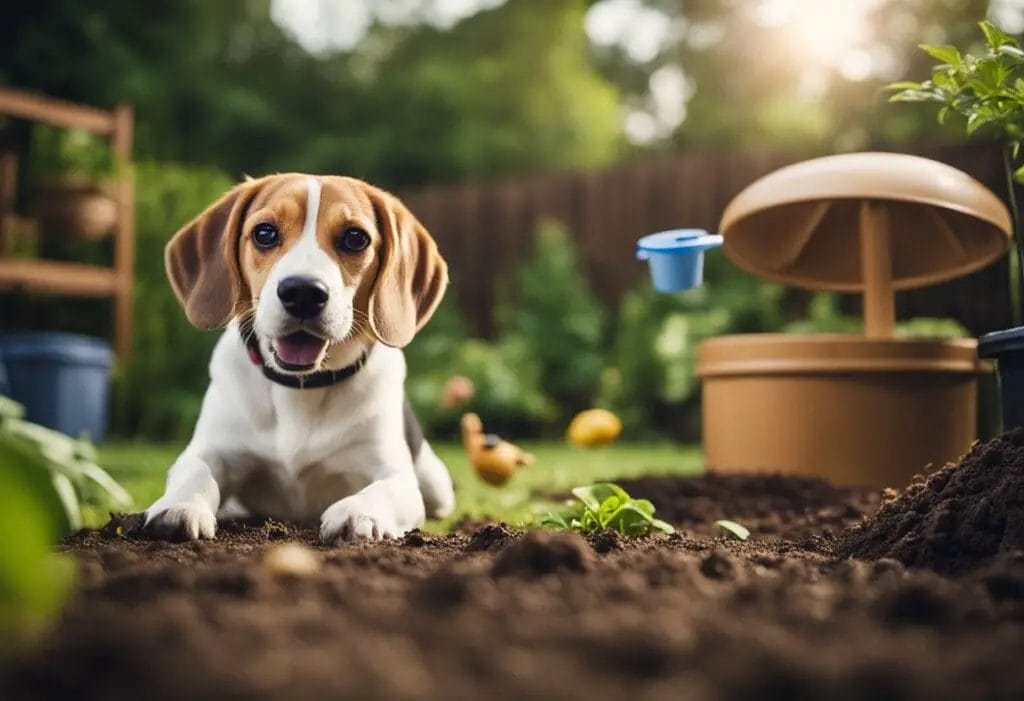As a proud Beagle owner, I am always looking for ways to reduce my environmental impact and live a more sustainable lifestyle. Dogs are wonderful companions, but they can also contribute to climate change through their food, waste, and consumption of resources.
That’s why I’ve compiled a list of eco-friendly practices that every Beagle owner can adopt to reduce their carbon pawprint and protect the planet for future generations.

One of the easiest ways to be a more eco-friendly Beagle owner is to choose sustainable pet products. There are now many companies that offer environmentally-friendly dog food, toys, and grooming supplies made from natural, biodegradable, or recycled materials. By opting for these products, you can reduce your pet’s environmental impact and support companies that prioritize sustainability.
Another important aspect of eco-friendly Beagle ownership is waste management. Dogs produce a lot of waste, from poop bags to discarded toys and food packaging. To minimize your furry friend’s contribution to landfills, consider using biodegradable poop bags, composting dog waste, and recycling as much of their waste as possible.
Additionally, you can reduce your pet’s consumption of resources by choosing durable toys and food containers that can be reused or repurposed instead of disposable ones.
Choosing Eco-Friendly Products

Here are some tips for selecting environmentally friendly options for your Beagle.
Toys and Accessories
When selecting toys for your Beagle, consider options made from sustainable materials like hemp or bamboo. These materials are durable and non-toxic, making them safe for your pet and the environment. Avoid plastic toys, as they can be harmful to wildlife and take hundreds of years to decompose. Look for toys that are labeled as compostable or made from recycled materials, and choose products with minimal packaging to reduce waste.
For leashes and collars, opt for options made from recycled materials or natural fibers like hemp or cotton. These materials are biodegradable and sustainable, making them a great choice for eco-conscious pet owners.
Grooming Products
When it comes to grooming products, look for options that are plant-based and free from harmful chemicals. Avoid products that contain synthetic fragrances or preservatives, as these can be harmful to your pet and the environment. Instead, opt for natural options like oatmeal shampoo or a fine-toothed comb for detangling.
For flea and tick prevention, avoid toxic products that can harm your pet and the environment. Instead, consider using a non-toxic flea and tick collar or natural remedies like essential oils.
Food and Treats
When choosing pet food and treats, look for options that are organic and made from sustainable ingredients. Avoid products that contain meat by-products or animal bone meal, as these can be harmful to the environment and contribute to food waste. Instead, opt for sustainable dog food made from plant-based ingredients or meat from ethical sources.
When it comes to treats, consider making your own using recipes that include ingredients like peanut butter, pumpkin, and oats. This not only reduces waste from packaging but also ensures that your pet is getting healthy, homemade treats.
Reducing Waste and Carbon Footprint
Here are some tips on how to be more eco-friendly with your furry friend.
Responsible Waste Disposal
Pet waste is a natural part of owning a dog, but it can have a negative impact on the planet if not disposed of properly. When pet waste ends up in landfills, it can release harmful pathogens and bacteria into the environment. To reduce this impact, I always make sure to pick up after my dog and dispose of it in a designated pet waste bin.
Another way to dispose of pet waste is by composting it. Composting pet waste can be a great way to reduce waste and create natural fertilizer for your garden. However, it is important to note that not all pet waste is safe for composting. Make sure to do your research and only compost waste from healthy dogs that are not on any medications.
Reducing Packaging and Plastic Use
Reducing packaging and plastic use is another great way to reduce waste and your carbon footprint. When purchasing dog food and treats, I always look for products that are packaged in recyclable materials or have minimal packaging. I also try to avoid single-use plastic bags and instead opt for reusable containers or compostable bags.
Another way to reduce plastic use is by using biodegradable poop bags. These bags are made from plant-based materials and will break down naturally in landfills, unlike traditional plastic bags that can take hundreds of years to decompose.
Additionally, I try to reuse and repurpose items whenever possible. For example, I use old t-shirts as rags for cleaning up after my dog instead of buying disposable paper towels.
Adopting Green Practices in Beagle Care

Here are a few tips that I have found helpful in adopting green practices in beagle care.
Natural Flea and Tick Prevention
Flea and tick infestations are common in dogs, but the use of chemical treatments such as tetrachlorvinphos, propoxur, and amitraz can have harmful effects on both your beagle and the environment. Instead, consider using natural methods such as vacuuming frequently, using plant-based ingredients, and opting for flea and tick treatments that use natural ingredients like cedar oil or neem oil.
Homemade Treats and Food
Making homemade dog treats and food is not only a great way to ensure that your beagle is getting the best nutrition possible, but it can also reduce your environmental impact. Consider using organic and plant-based ingredients such as bamboo, vegan and vegetarian options, and avoiding meat by-products. You can also reduce waste by making larger batches and storing them in reusable containers.
By adopting these green practices, you can help reduce your environmental impact and provide the best care for your beagle. Remember to consult with your veterinarian before making any changes to your beagle’s diet or medication regimen.
